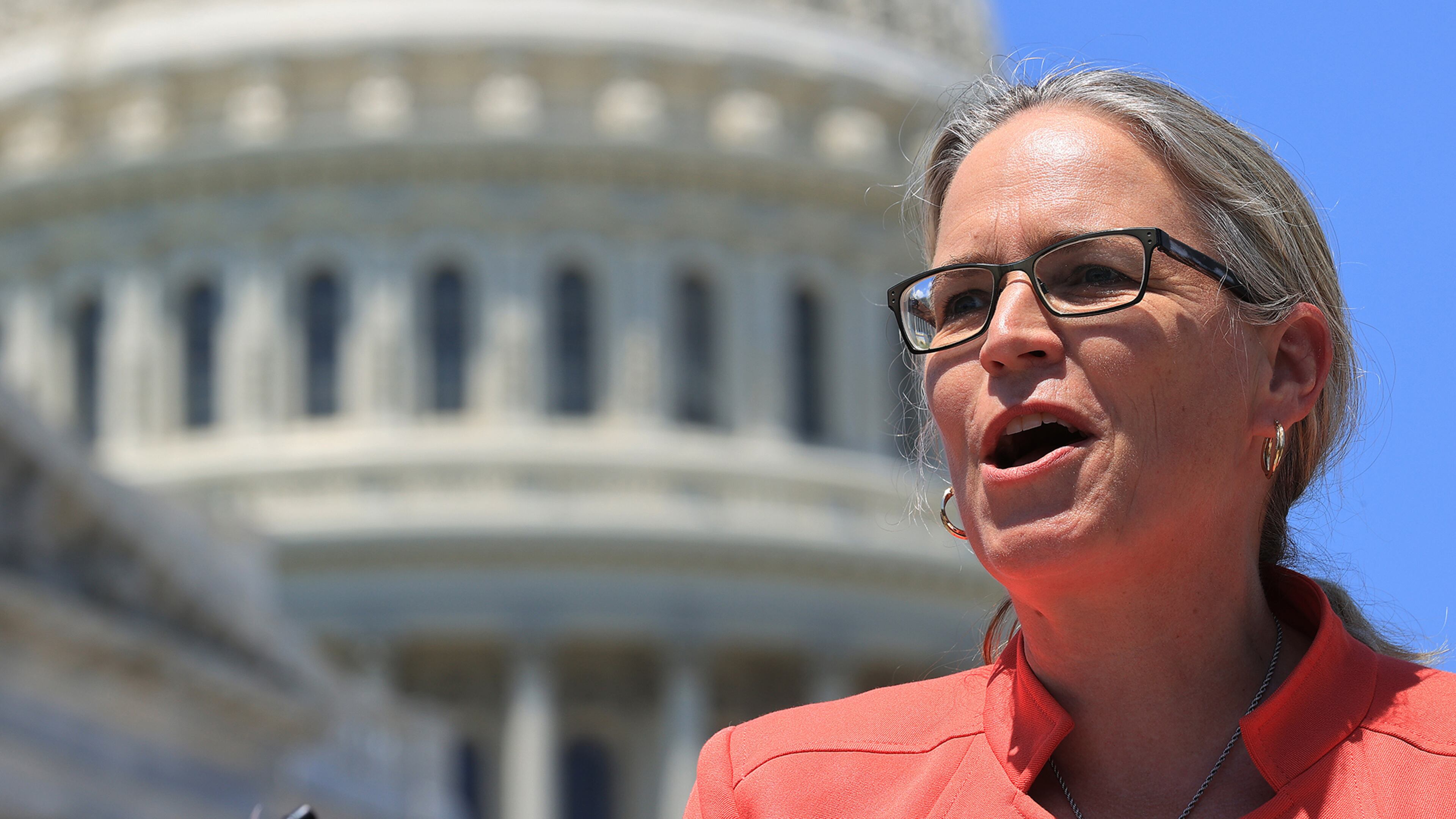OPINION: U.S. Rep. Carolyn Bourdeaux is still a Democrat, but...

U.S. Rep. Carolyn Bourdeaux knew from the moment she decided to run for Congress in 2017 that Republicans would eventually redraw the lines of her suburban Atlanta district.
But after losing to Rob Woodall in 2018 and winning in their 2020 rematch, she never anticipated that a fellow Democrat, U.S. Rep. Lucy McBath, would be the one to oust her from her 7th congressional district seat after less than one term in office.
The congresswomen have not spoken since before the May primary.
Although Bourdeaux posted a message to social media wishing McBath “all the best as she looks ahead to facing off against Republicans in November,” she did not call McBath to concede the race, nor did McBath call her when she decided to leave her 6th congressional district to challenge Bourdeaux.
“We do our own things,” Bourdeaux said. “We get along, we’re going to make it work and have a good transition.”
Losing to McBath 63% to 31% in the newly redrawn district was a quick end to the roller coaster ride of her congressional career, from losing the closest House race in the country in 2018 to defeating Republican Rich McCormick by more than 8,600 votes two years later.
Bourdeaux’s loss was ultimately a win for Republicans, who will increase their share of the delegation from eight seats to nine after putting McBath and Bourdeaux on a primary collision course, where only one Democrat could emerge.
And it’s one of several examples across the country of the intensifying polarization in Congress, where the House’s moderate “Blue Dog” Democratic caucus could shrink from 19 to as few as 8.
“First and foremost, my situation was a product of redistricting,” Bourdeaux said. “And then going up against a very famous Black woman who had unlimited resources that came in behind her.”
McBath spent more than $10 million in the primary race against Bourdeaux, who raised about $3.9 million for the contest.
That the newly drawn district became far more diverse and progressive made it almost impossible for her to win, she said.
“It was set up to be a minority opportunity district. The primary electorate was going to be close to 50% Black. I knew it was going to be a very uphill battle.”
One thing she does not think cost her the seat was the work she did on Capitol Hill.
Her highest profile moment was also her most controversial. A year ago this week, she joined eight fellow moderates in a standoff against House Speaker Nancy Pelosi to split the popular bipartisan infrastructure bill apart from the larger $3.5 trillion “Build Back Better” bill.
Although progressives warned the move would doom both measures, the infrastructure bill passed last year with broad support and Build Back Better was stripped down to the smaller climate, health and tax bill, which President Joe Biden signed last week to fanfare from Pelosi.
When it passed the House, Bourdeaux was there on the floor cheering it on.
“What a great moment!” she said. “Thank God, after all of that.”
Although she said she would have liked the bill to include universal pre-K and Medicaid expansion, she called the measure, “Just what the doctor ordered for the economy.”
She points to those two measures, along with securing federal funding for local initiatives and sponsoring a series of district events like jobs fairs, as her biggest victories in the limited time she’s spent in Congress.
And winning the seat in the first place.
“I was the only Democrat in the country to flip a seat in 2020,” she said. “The effort that we put in also really fed into the Senate victories as well. That was the number one thing I’ve accomplished, with the group of people that made this happen.”
But she said her experience, on the Hill and in the election leaves her worried about the future of electoral politics, where partisan extremes are overrepresented and groups she joined like the Blue Dog Democrats and Problem Solvers Caucus are being wiped out.
“Our democracy has lost the incentive structure for people to actually solve the problems,” she said. “A lot of those people who were instrumental in making these bills happen are going to be gone next Congress.”
She’d like to spend time in the future defining what it means to be a moderate in either party now.
“The Blue Dogs originally were socially conservative, fiscally responsible Democrats, but I don’t think that exists really anymore,” she said. Instead, she sees moderates lining up around the “socially progressive, fiscally responsible” issues.
And she stopped for a beat when I asked if, after the last two years, she still considers herself a Democrat at all.
“I have thought hard about that,” she said.
“Yes. I am a Democrat. But I think the Democratic Party needs to figure out what this wing of it looks like. Give some serious thought to how a moderate Democrat, a pragmatic Democrat, is going to function in the party.”
With her time left on the Hill, Bourdeaux is working to find work for most of her staff, send casework over to McBath’s office, and get one or two more legislative pieces done.
One is her bill to repurpose unused or underused shopping malls for multiuse development and, in a lame duck session, push for bipartisan immigration reform.
“The most heart-wrenching and most difficult set of issues I deal with is immigration,” she said. “I don’t know that we can make it through but there’s definitely a lot of discussion behind the scenes about a bipartisan solution.”
Passing immigration reform has nearly always been torpedoed by members of both parties for fear it could cost them their seats.
But for Bourdeaux and the other problem solvers, Blue Dogs, and moderates still left, there’s really nothing left to lose.



